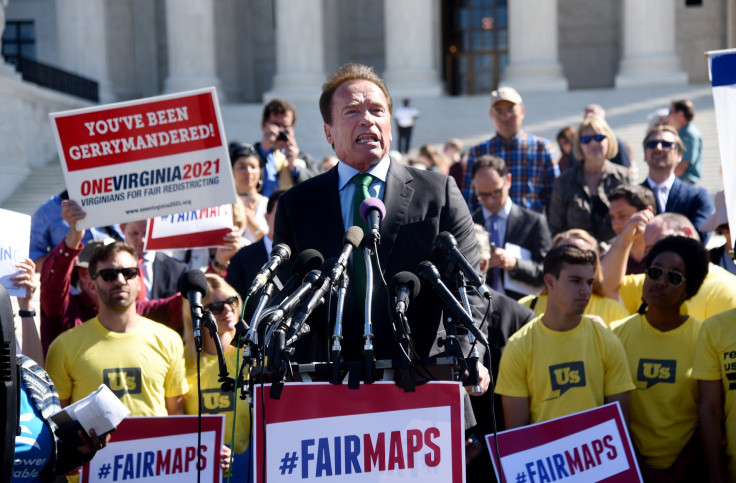Supreme Court Finds For Democrats In Virginia Gerrymander Case

The Supreme Court on Monday ruled the Republican-led Virginia House of Delegates did not have standing to challenge a lower court ruling that found several district-drawn maps resulted in an unconstitutional racial gerrymander.
Virginia has been a reliably Republican state but since 2009 the party has not won a statewide election. Still, Republicans control both chambers of the legislature. A lower court struck down as unconstitutional 11 districts that were drawn so that African Americans represented 55% of eligible voters in each district. The state has 26 house districts.
We are committed to holding & growing the 51-49 GOP majority in the House. Turnout tonight was significantly higher in Republican House nomination contests than in Democratic House nomination contests, a sign that our voters are engaged ahead of the pivotal elections this Fall. pic.twitter.com/9Qagte3s1x
— Kirk Cox (@SpeakerCox) June 12, 2019
Justice Ruth Bader Ginsburg wrote the opinion for the 5-4 decision, in which she was joined by Clarence Thomas, Sonia Sotomayor, Elena Kagan and Neil Gorsuch. The court did not rule on the constitutionality of district maps but rather on if the House of Delegates could represent the state instead of Attorney General Mark Herring.
In the opinion for the majority, Ginsburg wrote: “One House of its bicameral legislature cannot alone continue the litigation against the will of its partners in the legislative process.”
She added, "If the State had designated the House to represent its interests, and if the House had in fact carried out that mission, we would agree that the House could stand in for the State. Neither precondition, however, is met here.”
The decision will have immediate implications for Virginia’s fall legislative elections. Every legislative seat is up for re-election and Republicans hold only a two-seat advantage in both chambers. Twenty-six house districts were realigned by an outside expert after a lower court found the predominantly black districts unconstitutional. The high court ruling means the realignment will stand, and those districts favor Democrats.
In a statement released Monday, Speaker of the House Kirk Cox, who initiated the suit, vowed the fight was not over.
"Unfortunately, the Court's decision to not decide the merits of this case leaves a number of unanswered questions just two years before the next redistricting cycle," Cox said. "This could have been prevented if Attorney General Herring would have defended the law of the Commonwealth and allowed the court to provide an opinion on the merits of this case.”
The U.S. Supreme Court has rejected Virginia Republicans’ efforts to protect racially gerrymandered districts. Virginia’s elections this fall will take place in fair, constitutional districts. It's a good day for democracy in Virginia.
— Mark Herring (@MarkHerringVA) June 17, 2019
Herring declined to defend districts redrawn in 2011 when they were challenged in court.
"The US Supreme Court has rejected Virginia Republicans' efforts to protect racially gerrymandered districts. Virginia's elections this fall will take place in fair, constitutional districts. It's a good day for democracy in Virginia," Herring posted on Twitter on Monday.
In addition to the immediate impact the Supreme Court decision has on Virginia’s fall elections, if state Democrats flip either or both the House and Senate, they will be positioned to oversee the next round of redistricting after the 2020 census.
© Copyright IBTimes 2025. All rights reserved.





















